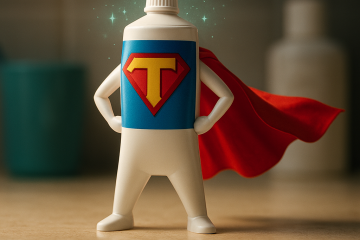
Obsolete skills come to life in a society down scenario
Imagine it: the power’s out, the internet’s gone, and suddenly your job title of “Middle Manager of Brand Synergy Optimization” is about as useful as a chocolate teapot at a campfire. Nobody’s trading two jars of beans for your PowerPoint slides. But here’s the good news—humanity has been through hard resets before, and we always come back to the same question: Who can actually fix stuff?
When society stumbles, the valuable folks are the ones who can do, build, or heal. Forget résumés—your skillset is your currency. So what are the practical trades and talents you can start learning now that will make you indispensable when “Google it” is no longer an option?
Stitch It Up: Sewing & Mending
Clothes rip. Shoes wear out. Zippers betray us at the worst times. A seamstress, tailor, or even just a competent mender will be worth their weight in canned peaches. Imagine trading a quick hem or a patched pair of jeans for fresh eggs—suddenly your Singer sewing machine looks like an ATM.
Pro tip: Start learning how to mend jeans, darn socks, and patch holes by hand. Machines are great until the grid dies—needles and strong thread are forever.
Sparks Fly: Welding & Metalwork
When civilization goes wobbly, metal doesn’t. Gates need fixing, stoves need patching, tools break and need reforging. Welding and blacksmithing are superhero-level skills in a low-tech society. Bonus: you’ll get to say “I’m a blacksmith” at neighborhood potlucks, which makes you sound like you belong in a Viking saga.
Pro tip: Even a basic course at your local community college could give you a foundation in welding or metal repair. You don’t need to build the Eiffel Tower—just being able to fix a cracked shovel blade will make you a hot commodity.
Cobblers Rule the World: Shoemaking & Repair
Let’s be honest, in a society-down scenario, Amazon Prime isn’t sending you new sneakers overnight. Shoes will literally carry people through crisis, which means the person who can repair soles, patch leather, or rig up durable sandals will always have a seat at the table.
Pro tip: Start small—learn how to replace soles or stitch leather. Bonus points if you can make boots waterproof.
The Food Whisperers: Gardening, Seed Saving & Preserving
It’s cute to say “I’ll just grow food when the time comes,” until you’re staring at dead tomato plants wondering where it all went wrong. Those who already know how to coax food from dirt, save seeds, and can their harvest will be the backbone of survival communities. Gardeners and food preservers will be the equivalent of Silicon Valley tech bros in the new economy—everyone wants in on what they know.
Pro tip: Grow something every season—even if it’s just herbs in a window box. Practice makes permanent.
Fix-It Folks: Mechanics & Tinkerers
Engines won’t stop existing just because Wi-Fi did. Generators, cars, water pumps, and bikes will all need constant TLC. The local mechanic or tinkerer with a knack for making broken things hum again will never lack for barter opportunities.
Pro tip: Learn small engine repair (think lawnmowers, generators, bikes). Even better—grab old broken machines at garage sales and practice bringing them back to life.
Healing Hands: Medical Know-How
Doctors and nurses will always be essential, but even basic first aid and herbal medicine can make you the go-to person in your group. If you can treat burns, stitch wounds, or identify which weed in the yard is safe to chew for a headache, you become priceless.
Pro tip: Take a wilderness first aid or herbal medicine class. Being the person who can stop bleeding or soothe stomach bugs will get you more gratitude than you can carry.
The Entertainers: Storytellers, Musicians & Teachers
When the work is done and the sun goes down, people need hope, laughter, and learning. Storytellers, musicians, and teachers have always been vital to community survival because they keep morale alive. Plus, it’s hard to barter for sanity, but a well-timed laugh or a fiddle tune comes close.
Pro tip: Pick up an instrument, memorize some jokes, or sharpen your teaching chops. Even if you’re not the best welder, being the person who lifts spirits makes you irreplaceable.
Here’s the real takeaway: staying relevant in a society-down world isn’t about doom or gloom—it’s about rediscovering timeless skills that make life work. The more you know how to do with your own hands, the more value you bring to any group, family, or neighborhood. And in a world where money might lose its meaning, competence is the new currency.
So go ahead—learn how to sew a patch, mend a shoe, or grow a potato. Who knows? The humble potato farmer might just be the new stockbroker. And let’s be real—potatoes are a way better investment than NFTs.


